- Home
- Franklin W. Dixon
Nightmare in Angel City Page 2
Nightmare in Angel City Read online
Page 2
Chapter 3
As THE CAR was shearing through the guardrail at the top of the cliff, Frank fumbled for the door handle. Large spots from staring at the sun still swam in front of his eyes, but his sight had returned enough to see the huge San Fernando Valley spread out below him. A weightlessness gripped the car. He was falling into that valley!
Frank rammed his shoulder into the door. His seat belt unbuckled, he took a deep breath and hurled himself into space.
He groped wildly, desperate for any handhold. One miraculous snatch and he did get his fingers around a tree branch. Twisting his body, he fought to grab on with the other hand. He continued dropping for a few seconds, then a shock jolted through his arms as he abruptly stopped The limb held!
From beneath him came the screams of metal tearing on rock until one huge explosion echoed through the air, and only the crackle of fire broke the welcome silence.
Relaxed by the quiet, Frank began to drift off, his grip on the tree loosening. He shook himselff violently. It's shock, he told himself. I have to stay awake. He looked down and saw where he was, dangling from a tree limb over a deep ravine. Pain shooting through his arms and shoulders, he pulled himself up on the branch and lay there for a minute before shinnying down the trunk.
Minutes later he scrambled up the hill to the road. The red Porsche was long gone. With no one in sight he began the lengthy walk to a police station.
***
I hope Frank's all right, Joe Hardy thought for the thousandth time in several hours. He sat in an easy chair in Emma Beaudry's living room, his burned arm wrapped in cold wet towels. The VCR was on, and Joe was fast-forwarding through videotapes with a remote control. He and Emma had found the tapes in an unburned-bureau in Callie's room and decided to look through them for clues. There was nothing suspicious or unusual about them. They appeared to be tapes Callie had made in her broadcast journalism class.
Right then Joe was watching a press conference that had also been filmed by all the major networks. None of the tapes seemed to be a reason for trying to burn down a house.
Callie's aunt appeared, carrying a tray. She set it down and poured each of them a glass of iced tea.
"Ms. Beaudry? Don't you know the names of any of Callie's friends here? Someone we could call?"
"Call me Emma, please," she insisted, smiling wearily. "As I said before, Callie spent all her time working on her class. She didn't bring any of her friends back here. All I know for certain is that she was very excited about her final project. She had to make a short news feature."
"Great," Joe replied. He sipped at his tea. "Nothing else?"
Emma shook her head. "No. The last time I saw her was a couple of days ago. She asked if I had any old clothes I didn't need anymore. I gave some to her, and she left for school."
"Where is that?" Joe asked, glancing at his watch nervously. It was getting late now. He wished he had some way to contact Frank.
"UCLA," Ms. Beaudry replied. "The University of California at Los Angeles. Over in Westwood. It's one of the largest in the country." Joe continued to stare at the television, expressionless. She raised her voice. "Surely you've heard of it?"
"What?" Joe asked. "Sorry. I was distracted. I'm worried about Frank. Listen," he said. "Maybe we should call Callie's parents. They deserve to know that their daughter may be in trouble."
"Please, no!" Emma said, her sophisticated air disappearing. "Really, my sister would kill me. Can't you boys handle this? You're hotshot detectives, aren't you? You were so wonderful with the police."
Emma had summoned the Beverly Glen police to witness the damage to her house before she called her insurance company.
Joe frowned. He had no idea who'd want to firebomb Emma's house, or why. He'd kept his suspicions—that the fire had something to do with Callie's absence or that it was a move to destroy evidence or even to scare the Hardys away—to himself. Now Joe wondered if he shouldn't have shared his hunches with the police because he was beginning to think that Frank's life might be at stake. He checked his watch again. Eight o'clock!
The doorbell rang, cutting off Joe's thoughts. "I'll get it," Emma said, jumping up from the couch.
"No, I will," Joe said. They raced together for the door.
On the front porch Frank was standing, his clothes torn and bloody, his face pale with exhaustion. Behind him, a cab backed out of the driveway and drove off.
Joe helped him to a chair. "What happened to you? And where's the car?"
"Don't ask. I just spent an hour at the car rental office trying to convince them and a policeman that our car went over a cliff because I was trying to avoid hitting a dog. They didn't offer me another car," he said flatly, and explained what happened.
"What about the guy you were chasing?" Joe asked.
"He got away. But I did learn something— maybe. I think he was a cop. I got one good look at him when he turned around to check me out. I think he was wearing a patrolman's uniform."
Joe looked puzzled. "Why?" he said, asking the question for all of them. After they were seated in the living room, Joe told Frank about the tapes.
"But you found nothing on them?" Frank asked.
"Absolutely nothing," said Joe, shaking his head. "No coded messages, no dangerous news stories — nothing out of the ordinary. There was nothing in Callie's room worth the gasoline forj that bomb."
Frank shook his head. "Obviously, our attacker thought something was here and didn't want us to get it."
"Like what?" Emma asked. "What could Callie be hiding?"
"That's the problem," Frank replied. "The only one who knows is Callie. And if someone is throwing bombs and trying to kill me because of it, she could be in really bad trouble. We have to find her. Who else might know where she is?"
"Emma said Callie's been working on a special project at school," Joe began. "So her professors might have some idea. What do you say? Head for UCLA?"
Frank nodded.
"But it's after eight o'clock," Emma added, "None of the offices will be open."
"A little thing like that won't stop us," said Joe. He set his glass down on the tray, and he and Frank started for the door.
"Boys," Ms. Beaudry said with a smile. "UCLA is casual, but I don't think anyone will talk to Frank dressed like that."
"Maybe you should change," Joe said. "I've got something you can wear."
"I'll be quick," Frank replied grimly.
Emma Beaudry insisted she drive the boys in her car. "Thanks for everything," Joe said as they all went out.
"Call me the minute you find something," said Emma, walking out to her car. "Callie's sensible, but still—I'll be up all night worrying."
"Will do." Joe grinned reassuringly as he climbed into the passenger seat. "I'm sure you're right, Emma. Callie's probably just out chasing a scoop. We'll call you as soon as we can."
Emma Beaudry gave him a dazzling smile of gratitude and backed out of the drive.
"Look, Frank," Joe said as they trudged along a street through UCLA. The boys had been dropped off blocks earlier because the street was closed to traffic. A few students, carrying armloads of books, walked past them as they came from the direction of the library. "Emma said it was only a couple of miles to UCLA, but she never mentioned the couple of miles we'd have to walk into it. This place is the size of a small city."
Frank barely heard him. He was too intent on looking at the buildings. "There it is," he finally said, pointing to a modern building of concrete and glass. School of Journalism was posted on a large sign in front of it.
"Great," said Joe. "What do we do?"
"Callie told me she was studying with a guy named Reese. Let's see if we can find his office."
"And if he's not here?" Joe asked.
'Okay," he said.
Frank shrugged.
They walked up the front steps, and Joe pulled on the door. It opened, and the two entered the apparently deserted building. The first-floor corridor was lined with office doors b
earing the names of the occupants. Near the end of the hall Frank found a plaque that read Prof. James Reese, Ph.D. "Here it is," Frank said. He knocked on the door. No answer. He tried to open the door. Locked.
Joe stepped forward and pressed his face against the glass and peered in. "No way we're getting in there tonight." He shook his head slowly.
Not even sure what they had expected to find, the boys walked out of the building feeling unbearably frustrated and dejected. The last bit of light from the setting sun still washed the sky with splashes of pale pink. "How about we go get something to eat and figure out where to sleep tonight?" Joe said, admiring the last of the color.
"I don't know if I can eat. I keep thinking about that call from Callie. We don't even know if she's alive still. We've got to do something— and quick." Frank grew steadily more agitated as he spoke.
"If you don't eat, you'll get sick and won't be able to help anyone — not even yourself," Joe reminded his brother.
Frank smiled and shrugged. "Okay," he said. lead on!"
Minutes later they stepped through the south gate of UCLA and onto a street of West wood. Brightly lit stores lined the street, and the Hardys walked down the block, looking for a restaurant. Just then a young man bumped into Frank. "Hey, watch it," Frank said, rubbing his arm while he looked at the guy. Despite the heat of the Los Angeles night, he was dressed in several layers of clothing. With fearful eyes he watched Frank as he backed away, disappearing into the night.
"Come on," Frank said, shrugging the encounter off and grabbing Joe by the arm. He pulled him toward a Mexican restaurant. "It is time for [some food." He tapped his palm against his pocket with his wallet. He stopped dead in his tracks.
"My wallet. It's gone," he said with a note of disbelief. "That kid picked my pocket." "You mean that kid?" Joe said. The young man was creeping toward an alley.
"Right. Him," Frank replied angrily. He shouted, "Hey, you! Give me back my wallet."
The young man looked up with round, startled eyes and then darted into the alley. The Hardys - tore after him but stopped when they entered the galley. The young man was no longer fleeing; he was standing halfway down the concrete canyon, watching them defiantly. Cautiously, they move forward again.
As their eyes grew accustomed to the darkness of the alley, the brothers gradually picked out shapes moving in some of the darkened doorways. Joe and Frank slowed to a halt as, one by one, the shapes took human form and inched forward to surround them.
Frank clenched his fists. "Get ready," he muttered to Joe. "Looks like we're in for it."
Chapter 4
The Hardys pressed their backs together. "Take out as many as you can," Frank whispered to Joe, "before we make a break for it." From every direction the menacing figures continued to stalk them. Then suddenly they began to snicker among themselves, until the alley seemed to become filled with laughter.
"Okay, guys, that's enough!" cried a voice.
To the brothers' surprise, the people turned away as they were just an arm's length from the Hardys.
From a doorway stepped a woman. It was too dark to see her face, but in the light from the street the Hardys could see she was dressed in a ragged jacket and blue jeans. Her head, covered by a ski cap, appeared to be too small for her body. Then Joe realized that she, too, was wearing several layers of clothing. In her hands were several bulging shopping bags.
With a quavering voice the woman said, "So you think this poor boy has your wallet?"
Frank blinked and strained his eyes to catch a glimpse of the bag lady's face. Despite the distorted way she had spoken, he knew that voice!
"Callie?" he said cautiously. Everyone broke into uproarious laughter again, and, grinning, Callie Shaw strode into the light.
"Callie Shaw!" Joe snapped angrily. "What are you doing? Frank's been going nuts wondering what's happened to you."
"Nice to see you, too, Joe," Callie said.
The circle of street people stepped aside, and Frank moved close to Callie. "What's going on here? Why are you dressed like that? Who are these people?" Involuntarily, he wrinkled his nose.
"The smell," Callie whispered. "I know. It took me a while to get used to it too." She gestured to the street people and raised her voice. "Everyone, these are my friends, Frank and Joe Hardy. Meet Adrienne, Frank and Joe."
A small woman, barely older than Frank, nodded slightly. She wore blue jeans, a sweatshirt, and old sneakers with the toes worn through. "Pleased to meet you," she said.
"Bob and Jimmy." Two men—the first black, wearing a short windbreaker and corduroy trousers, and the second, white and bearded—grinned and said, "Howdy."
An older man with cowboy boots and a three-day stubble leaned toward the Hardys. "I'm Charlie," he said. "You can call me Charlie."
Callie flagged forward the boy who had taken Frank's wallet. "Okay, Lewis. You can give Frank his wallet back. Don't worry, he won't hurt you." To Frank and Joe she said, "I needed some way to get you to come to me without showing myself."
The boy called Lewis moved toward them, the wallet stretched out before him. Frank took the billfold as Lewis backed away quickly into the darkness.
Callie watched Frank check the contents of his wallet. "Come on, Frank!" she said, annoyed. "They're not thieves, they're street people."
"We're artists," Bob corrected her. "Just down on our luck."
"You still haven't explained what you're doing here," Joe told Callie.
"Yeah, Callie," Frank said, angry now. "You told me on the phone you were in trouble. We were cut off with a clunk — I thought you might be dead."
"I'm sorry if I scared you. But I really am in trouble. Look, I've got to catch a bus to Santa Monica. That's where we're staying. I'll tell you everything on the way. Will you come?" Frank didn't budge. "Please, I need you."
Frank knew Callie must really be in trouble or ' she wouldn't have pulled such a rotten stunt. "Okay," he said, and nodded once. "Joe?"
Joe nodded too. "Why a bus?" Joe asked.
"Two reasons," said Callie. "First, it's the only thing, besides walking, my friends can afford. Second, buses stop and go. It's easy to spot someone tailing a bus."
"Tailing?" Frank repeated apprehensively.
"What kind of trouble are you in?"
"Like you wouldn't believe. It's a big story. Come on, I'll tell you all about it."
***
The abandoned bottling plant, decades old, stood on the beach between the Santa Monica pier and new condominiums built to the south. Once the plant had bottled a local brand of soft drink. It would be gone soon to make room for more condominiums, but in the meantime it housed dozens of homeless people, most of them : artists or musicians. Many had their musical instruments with them. Others kept supplies of paper and ink for drawing beside their makeshift cots. The walls inside the plant had been painted . with vividly colored murals in many different styles.
"There's quite a little art colony here," Callie told Frank and Joe as they toured the building. "They're great people, but for one reason or another they don't have homes, so they camp out here. They help one another out."
"Wonderful," said Joe, getting angry. "Callie, we flew for six hours. I've been scorched. Frank had to jump from a speeding car. We're both dead tired — we want to know what's going on."
"Okay," Callie said. "You know about my broadcast journalism class."
"Yes," said Frank, not sure if he could believe anything now.
"Well, when I heard about this colony of artists, I decided to do my final class project on them. You know, interview them, tape their daily routines. But when I approached them, they didn't want anything to do with me. I had to get close to them."
"So you pretended to be one of them," Joe observed. "Callie, I didn't think you had it in you."
"Thanks — I think," Callie said. "Anyway, it was great. I had a video camera concealed in a bag and my microphones hidden in my clothes. They didn't even know the equipment was there. After a
day they started talking to me. And I decided to narrow my report down to six people: the five you met and Patch."
"Patch?"
"I don't know what his real name is. He's an older man—in his forties, I'd say. He has a patch over his right eye, so everyone calls him Patch. Well, I couldn't get him to open up to me.
"So I followed him—discreetly, from a distance. A couple of times he spotted me and ducked away, so I started following him in disguises.
"Last night when I followed him, I tracked him to the beach up near Pacific Palisades. He waited in one spot until about five this morning. Then a policeman came onto the beach — "
"A policeman?" Frank said.
"Yeah. He was in uniform and carrying a briefcase," Callie continued. "I thought it was strange, so I started videotaping the whole thing. They seemed to know each other. Patch started yelling at the cop, but I wasn't close enough to hear what he was saying. The policeman handed Patch the briefcase, and as Patch opened it, the policeman drew his revolver and aimed it at Patch."
"And, of course, you yelled," Joe said, speculating.
"Isn't that what you would have done?" Callie said sharply. "This is my story. Please stop interrupting. When the policeman heard my voice, he spun around and aimed at me. He was a good shot too. He smashed my camera, and I thought I was done for. But Patch stopped him. He hit him over the head with the briefcase."
' She frowned. "It flew open, and I could see it was empty. Whatever the policeman was supposed to bring he didn't. Patch took off down the beach while the policeman staggered in loopy circles. I grabbed the camera and took off. It didn't look like anyone was chasing me, so I stopped at the first phone booth and called you. I thought I'd better get some help."
"Then what?" asked Frank.
"Then, right after we talked a minute, I saw the cop coming down the road toward me. I dropped the phone and ran. Late this afternoon when I got to school I heard a policeman had been nosing around looking for me. How he traced me to school I can't figure."

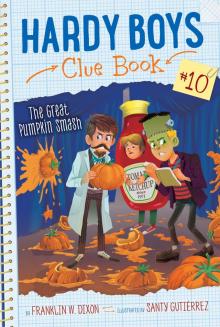 The Great Pumpkin Smash
The Great Pumpkin Smash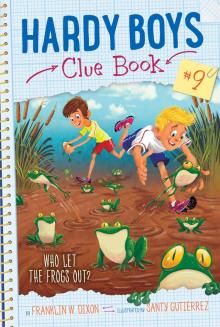 Who Let the Frogs Out?
Who Let the Frogs Out?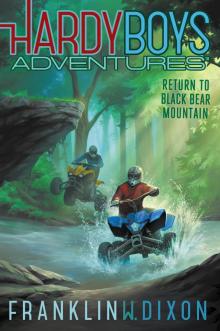 Return to Black Bear Mountain
Return to Black Bear Mountain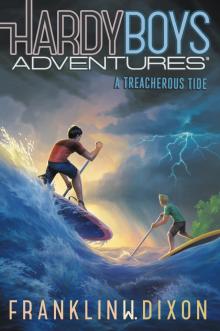 A Treacherous Tide
A Treacherous Tide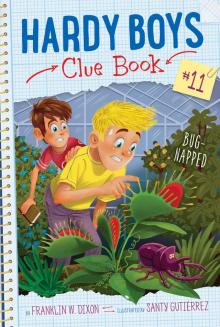 Bug-Napped
Bug-Napped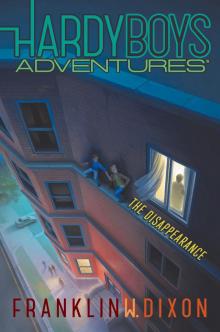 The Disappearance
The Disappearance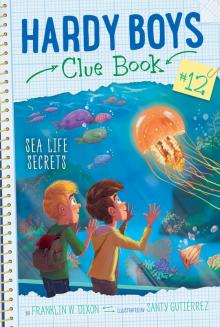 Sea Life Secrets
Sea Life Secrets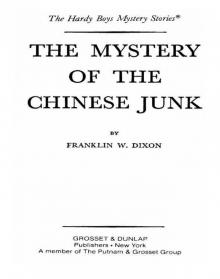 The Mystery of the Chinese Junk
The Mystery of the Chinese Junk A Skateboard Cat-astrophe
A Skateboard Cat-astrophe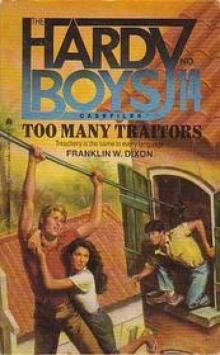 Too Many Traitors
Too Many Traitors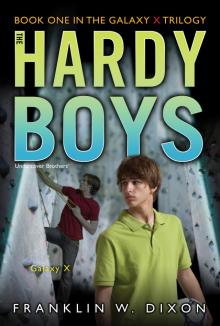 Galaxy X
Galaxy X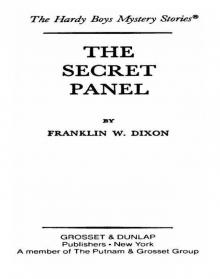 The Secret Panel
The Secret Panel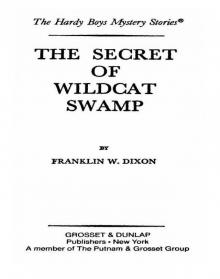 The Secret of Wildcat Swamp
The Secret of Wildcat Swamp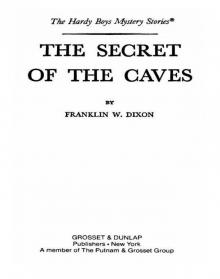 The Secret of the Caves
The Secret of the Caves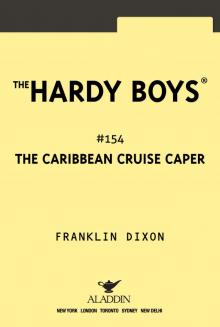 The Caribbean Cruise Caper
The Caribbean Cruise Caper Without a Trace
Without a Trace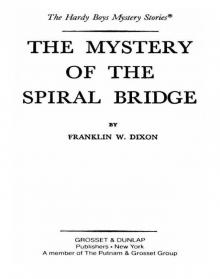 The Mystery of the Spiral Bridge
The Mystery of the Spiral Bridge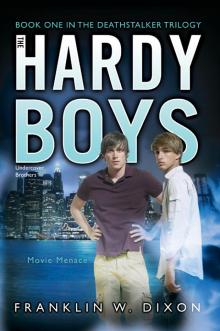 Movie Menace
Movie Menace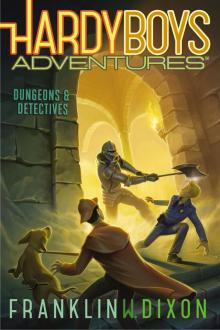 Dungeons & Detectives
Dungeons & Detectives Water-Ski Wipeout
Water-Ski Wipeout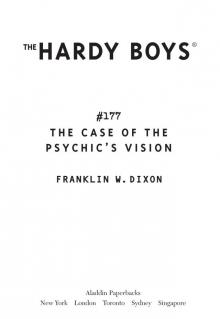 The Case of the Psychic's Vision
The Case of the Psychic's Vision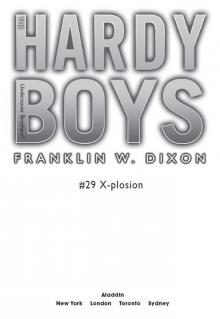 X-plosion
X-plosion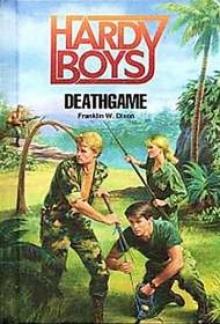 Deathgame
Deathgame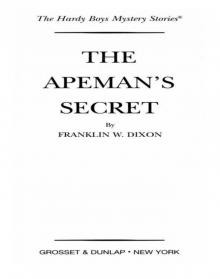 The Apeman's Secret
The Apeman's Secret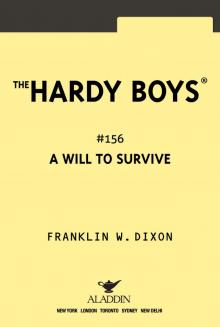 A Will to Survive
A Will to Survive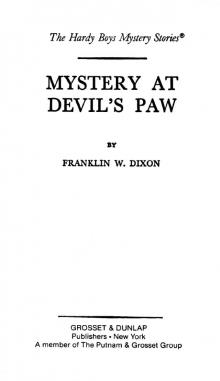 Mystery at Devil's Paw
Mystery at Devil's Paw Blood Money
Blood Money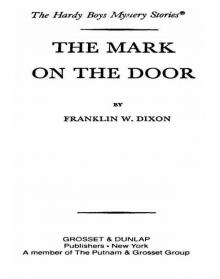 The Mark on the Door
The Mark on the Door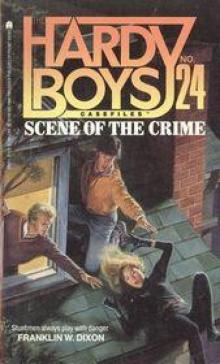 Scene of the Crime
Scene of the Crime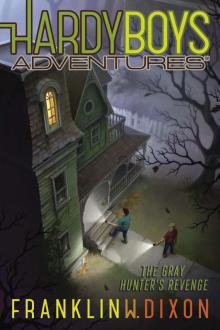 The Gray Hunter's Revenge
The Gray Hunter's Revenge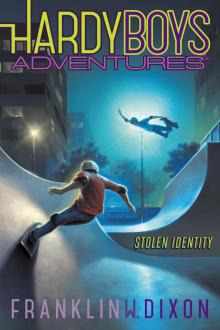 Stolen Identity
Stolen Identity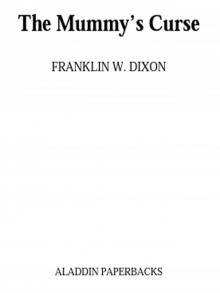 The Mummy's Curse
The Mummy's Curse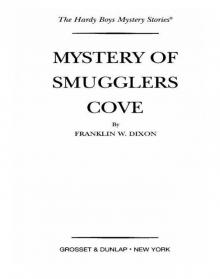 Mystery of Smugglers Cove
Mystery of Smugglers Cove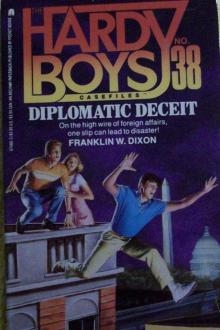 Diplomatic Deceit
Diplomatic Deceit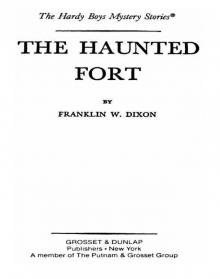 The Haunted Fort
The Haunted Fort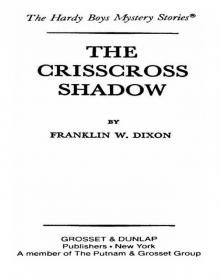 The Crisscross Shadow
The Crisscross Shadow Secret of the Red Arrow
Secret of the Red Arrow Trial and Terror
Trial and Terror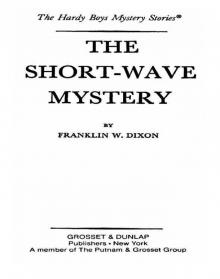 The Short-Wave Mystery
The Short-Wave Mystery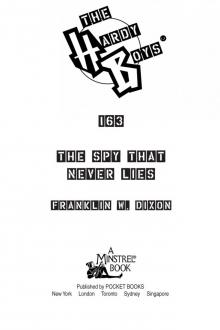 The Spy That Never Lies
The Spy That Never Lies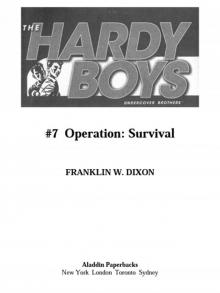 Operation: Survival
Operation: Survival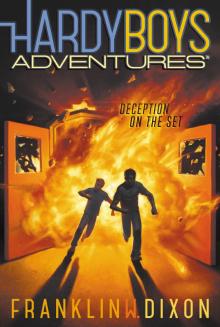 Deception on the Set
Deception on the Set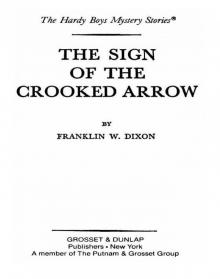 The Sign of the Crooked Arrow
The Sign of the Crooked Arrow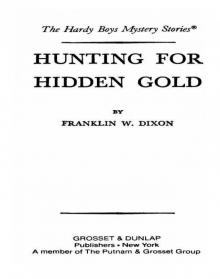 Hunting for Hidden Gold
Hunting for Hidden Gold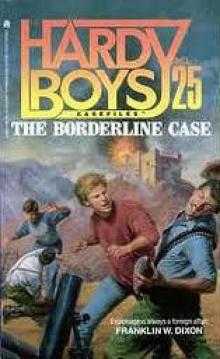 Disaster for Hire
Disaster for Hire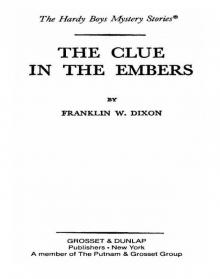 The Clue in the Embers
The Clue in the Embers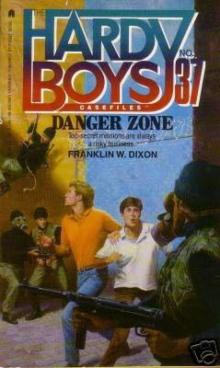 Danger Zone
Danger Zone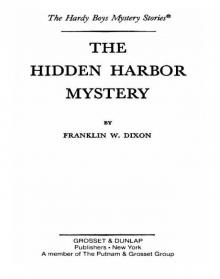 The Hidden Harbor Mystery
The Hidden Harbor Mystery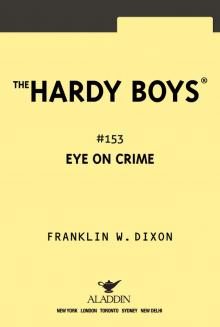 Eye on Crime
Eye on Crime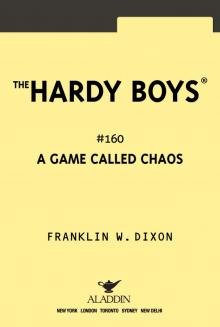 A Game Called Chaos
A Game Called Chaos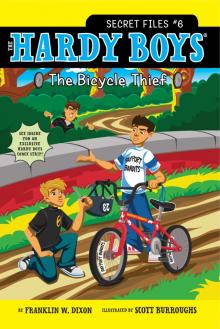 The Bicycle Thief
The Bicycle Thief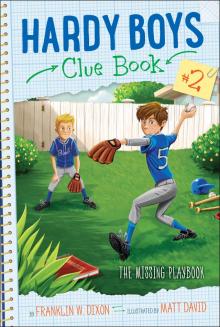 The Missing Playbook
The Missing Playbook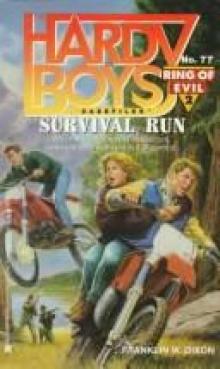 Survival Run
Survival Run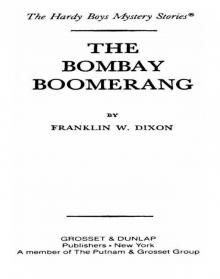 The Bombay Boomerang
The Bombay Boomerang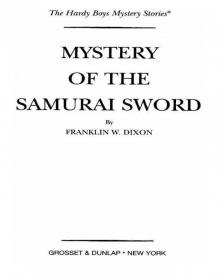 Mystery of the Samurai Sword
Mystery of the Samurai Sword Burned
Burned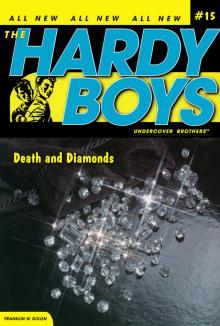 Death and Diamonds
Death and Diamonds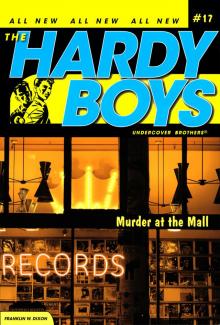 Murder at the Mall
Murder at the Mall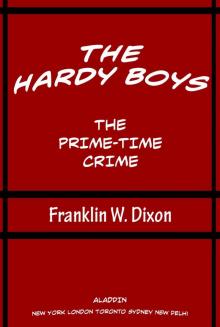 The Prime-Time Crime
The Prime-Time Crime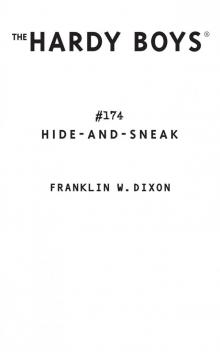 Hide-and-Sneak
Hide-and-Sneak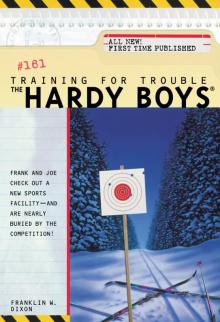 Training for Trouble
Training for Trouble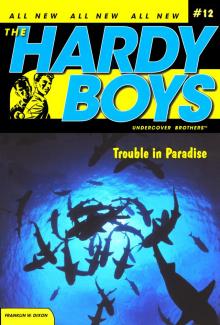 Trouble in Paradise
Trouble in Paradise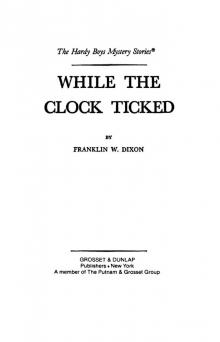 While the Clock Ticked
While the Clock Ticked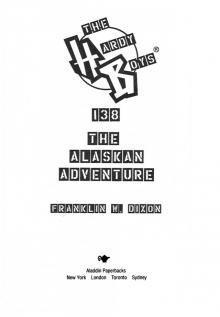 The Alaskan Adventure
The Alaskan Adventure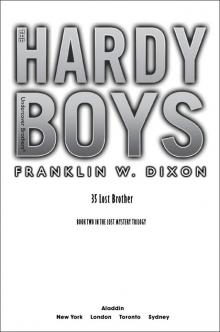 The Lost Brother
The Lost Brother Tunnel of Secrets
Tunnel of Secrets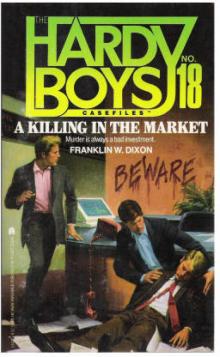 A Killing in the Market
A Killing in the Market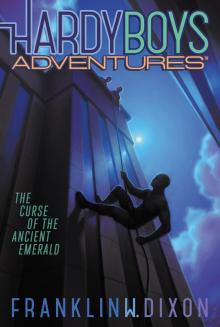 The Curse of the Ancient Emerald
The Curse of the Ancient Emerald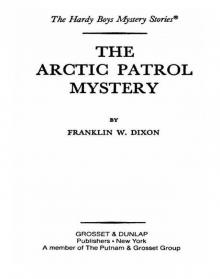 The Arctic Patrol Mystery
The Arctic Patrol Mystery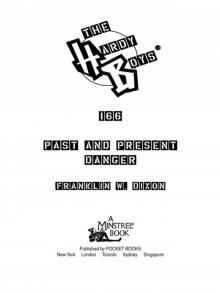 Past and Present Danger
Past and Present Danger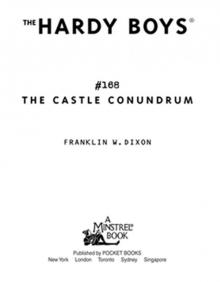 The Castle Conundrum (Hardy Boys)
The Castle Conundrum (Hardy Boys)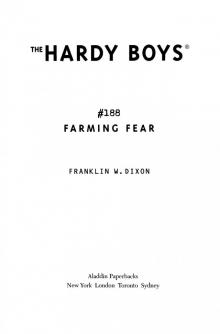 Farming Fear
Farming Fear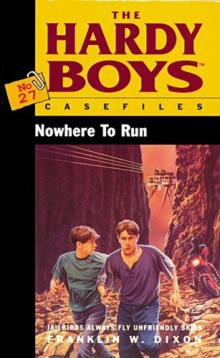 Nowhere to Run
Nowhere to Run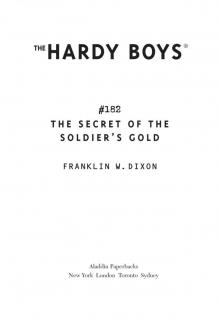 The Secret of the Soldier's Gold
The Secret of the Soldier's Gold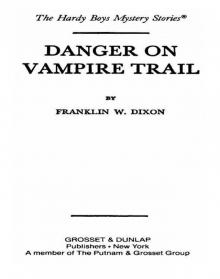 Danger on Vampire Trail
Danger on Vampire Trail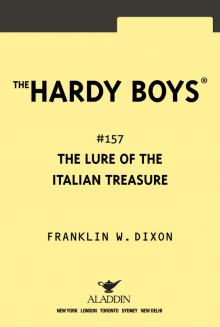 The Lure of the Italian Treasure
The Lure of the Italian Treasure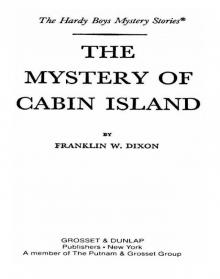 The Mystery of Cabin Island
The Mystery of Cabin Island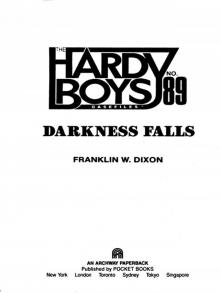 Darkness Falls
Darkness Falls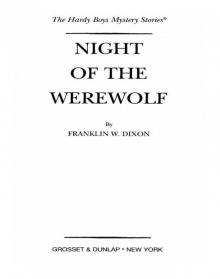 Night of the Werewolf
Night of the Werewolf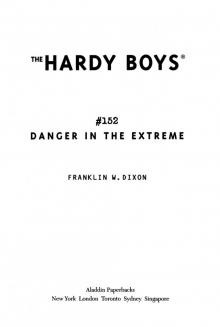 Danger in the Extreme
Danger in the Extreme The Lazarus Plot
The Lazarus Plot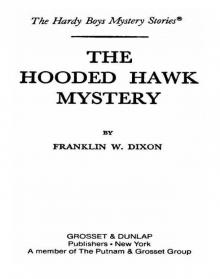 The Hooded Hawk Mystery
The Hooded Hawk Mystery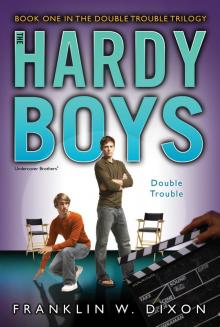 Double Trouble
Double Trouble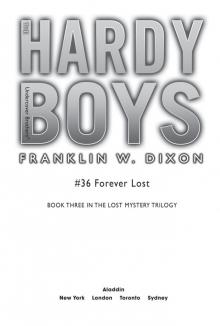 Forever Lost
Forever Lost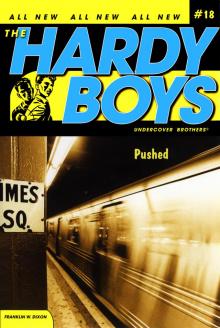 Pushed
Pushed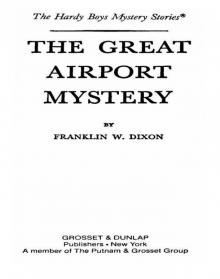 The Great Airport Mystery
The Great Airport Mystery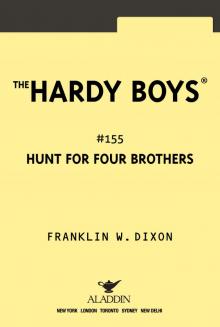 The Hunt for Four Brothers
The Hunt for Four Brothers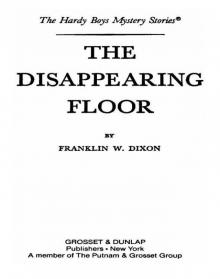 The Disappearing Floor
The Disappearing Floor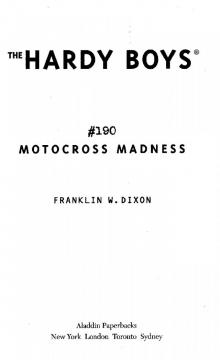 Motocross Madness
Motocross Madness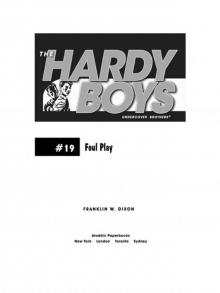 Foul Play
Foul Play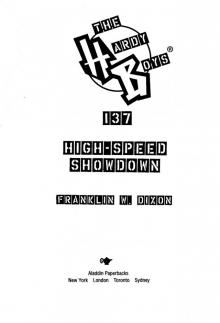 High-Speed Showdown
High-Speed Showdown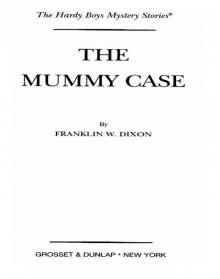 The Mummy Case
The Mummy Case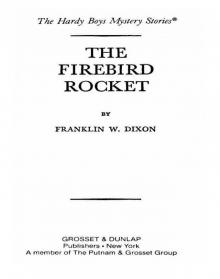 The Firebird Rocket
The Firebird Rocket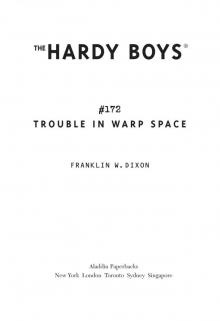 Trouble in Warp Space
Trouble in Warp Space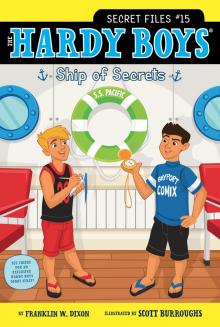 Ship of Secrets
Ship of Secrets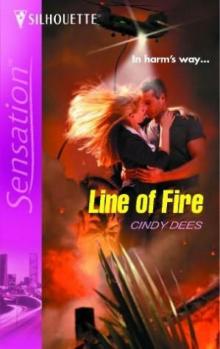 Line of Fire
Line of Fire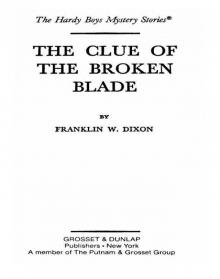 The Clue of the Broken Blade
The Clue of the Broken Blade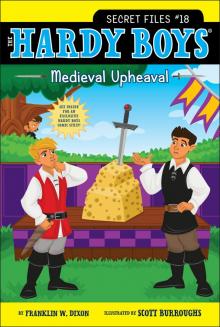 Medieval Upheaval
Medieval Upheaval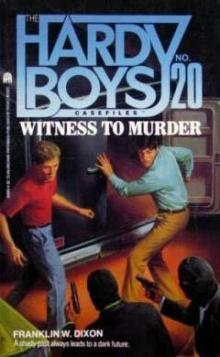 Witness to Murder
Witness to Murder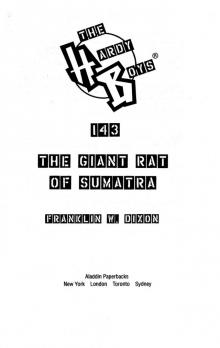 The Giant Rat of Sumatra
The Giant Rat of Sumatra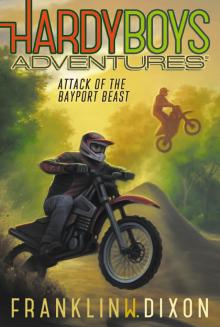 Attack of the Bayport Beast
Attack of the Bayport Beast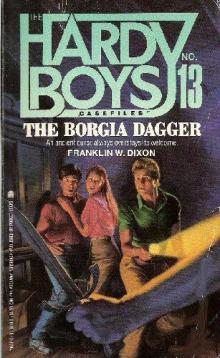 The Borgia Dagger
The Borgia Dagger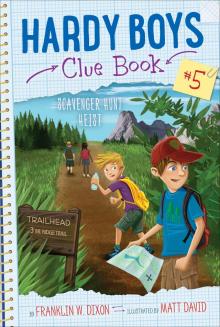 Scavenger Hunt Heist
Scavenger Hunt Heist No Way Out
No Way Out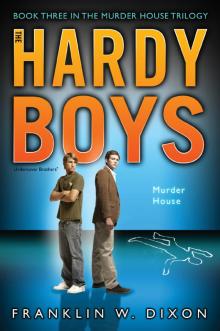 Murder House
Murder House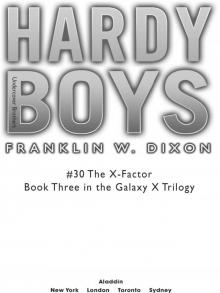 The X-Factor
The X-Factor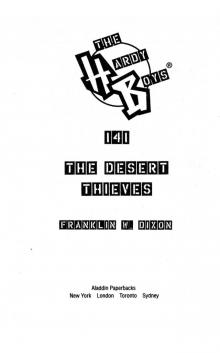 The Desert Thieves
The Desert Thieves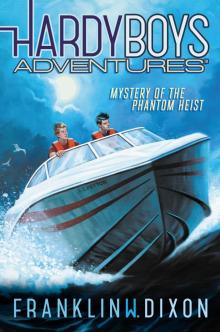 Mystery of the Phantom Heist
Mystery of the Phantom Heist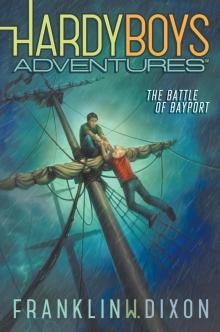 The Battle of Bayport
The Battle of Bayport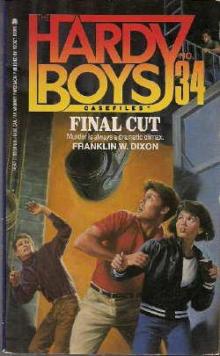 Final Cut
Final Cut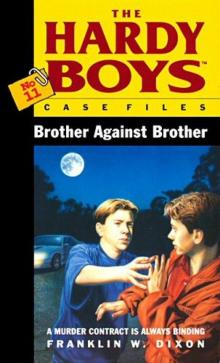 Brother Against Brother
Brother Against Brother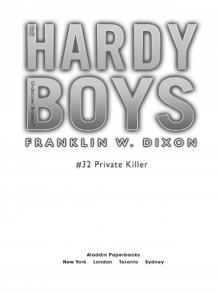 Private Killer
Private Killer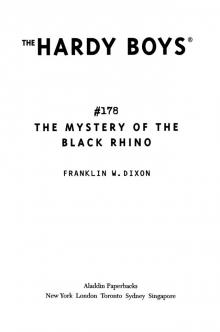 The Mystery of the Black Rhino
The Mystery of the Black Rhino Feeding Frenzy
Feeding Frenzy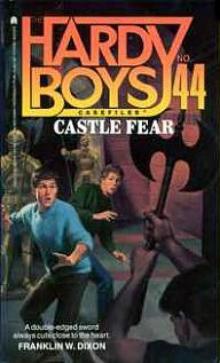 Castle Fear
Castle Fear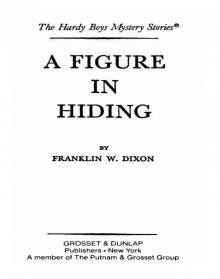 A Figure in Hiding
A Figure in Hiding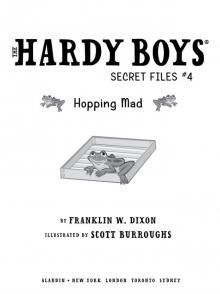 Hopping Mad
Hopping Mad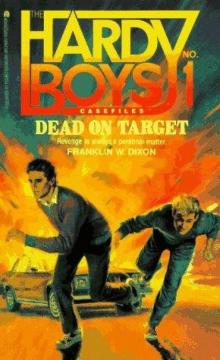 Dead on Target
Dead on Target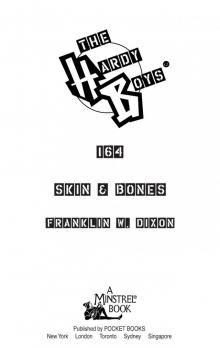 Skin and Bones
Skin and Bones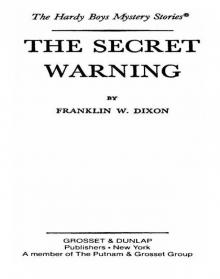 The Secret Warning
The Secret Warning Flesh and Blood
Flesh and Blood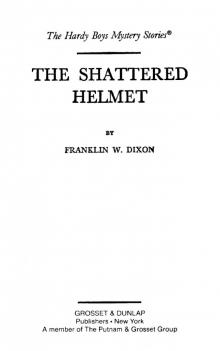 The Shattered Helmet
The Shattered Helmet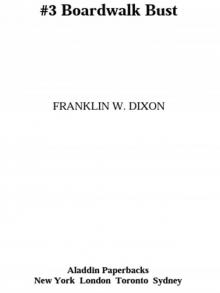 Boardwalk Bust
Boardwalk Bust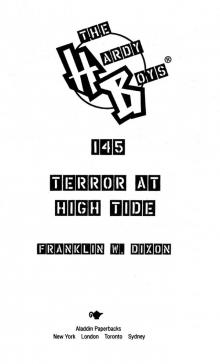 Terror at High Tide
Terror at High Tide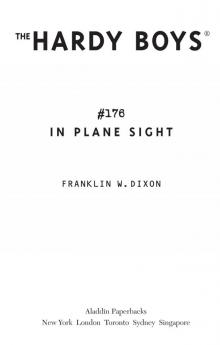 In Plane Sight
In Plane Sight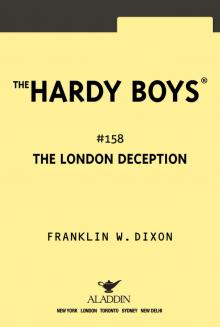 The London Deception
The London Deception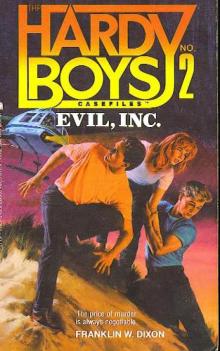 Evil, Inc.
Evil, Inc.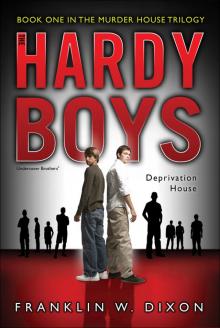 Deprivation House
Deprivation House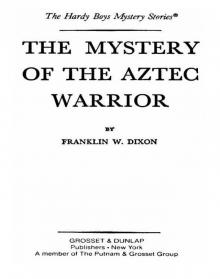 The Mystery of the Aztec Warrior
The Mystery of the Aztec Warrior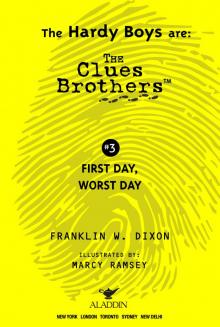 First Day, Worst Day
First Day, Worst Day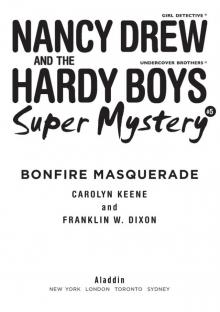 Bonfire Masquerade
Bonfire Masquerade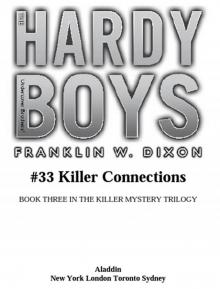 Killer Connections
Killer Connections Strategic Moves
Strategic Moves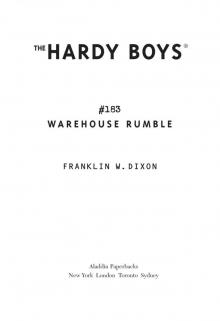 Warehouse Rumble
Warehouse Rumble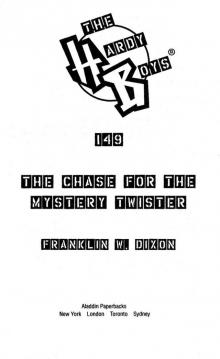 The Chase for the Mystery Twister
The Chase for the Mystery Twister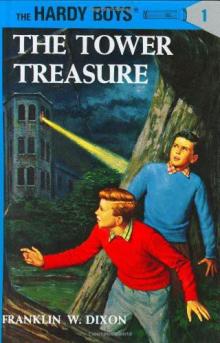 The Tower Treasure thb-1
The Tower Treasure thb-1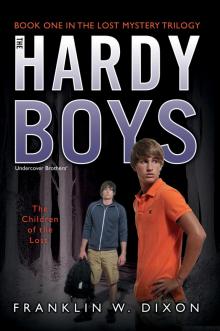 The Children of the Lost
The Children of the Lost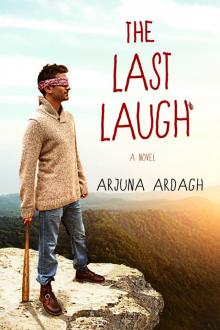 The Last Laugh
The Last Laugh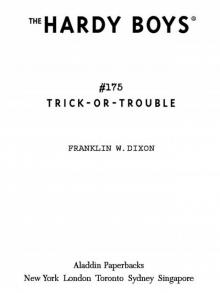 Trick-or-Trouble
Trick-or-Trouble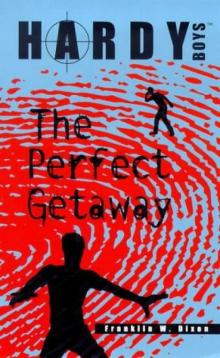 Perfect Getaway
Perfect Getaway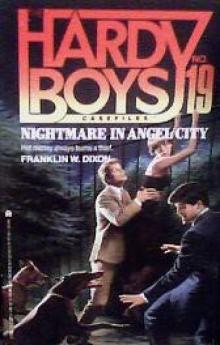 Nightmare in Angel City
Nightmare in Angel City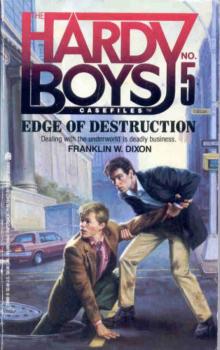 Edge of Destruction
Edge of Destruction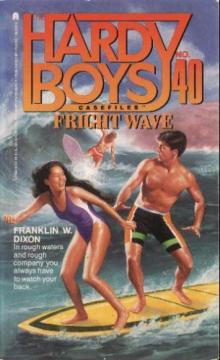 Fright Wave
Fright Wave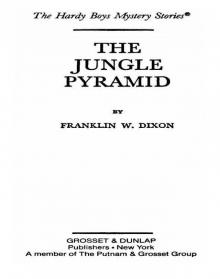 The Jungle Pyramid
The Jungle Pyramid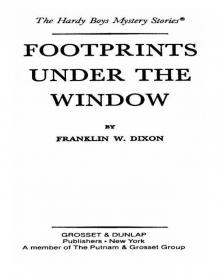 Footprints Under the Window
Footprints Under the Window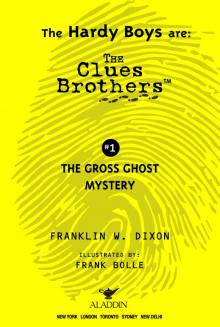 The Gross Ghost Mystery
The Gross Ghost Mystery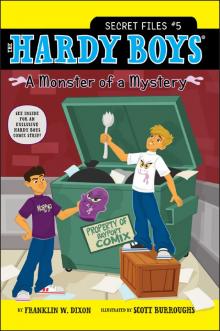 A Monster of a Mystery
A Monster of a Mystery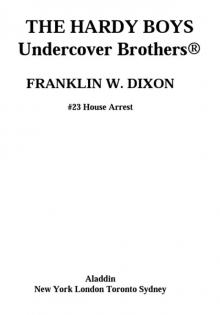 House Arrest
House Arrest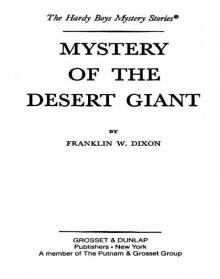 Mystery of the Desert Giant
Mystery of the Desert Giant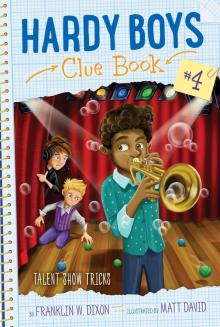 Talent Show Tricks
Talent Show Tricks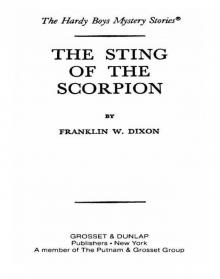 The Sting of the Scorpion
The Sting of the Scorpion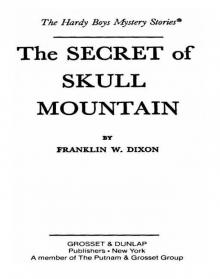 The Secret of Skull Mountain
The Secret of Skull Mountain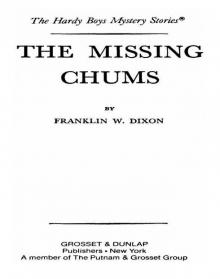 The Missing Chums
The Missing Chums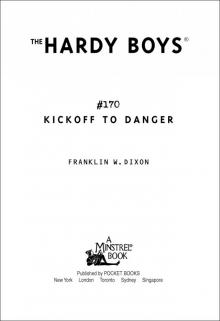 Kickoff to Danger
Kickoff to Danger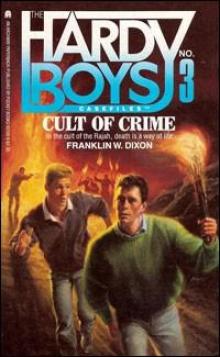 Cult of Crime
Cult of Crime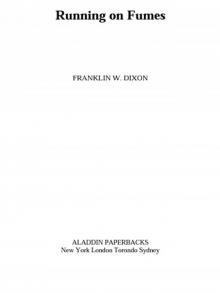 Running on Fumes
Running on Fumes Martial Law
Martial Law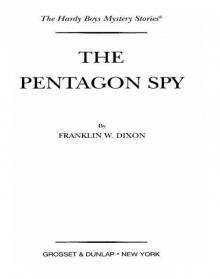 The Pentagon Spy
The Pentagon Spy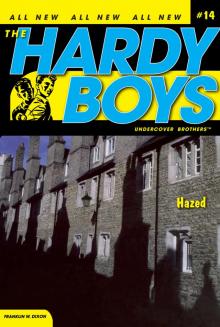 Hazed
Hazed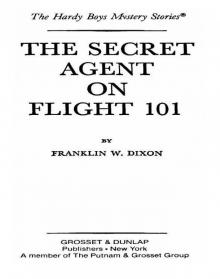 The Secret Agent on Flight 101
The Secret Agent on Flight 101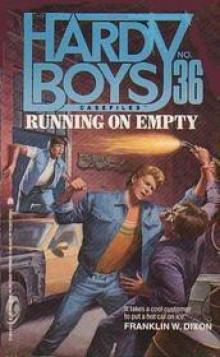 Running on Empty
Running on Empty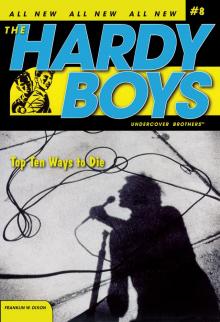 Top Ten Ways to Die
Top Ten Ways to Die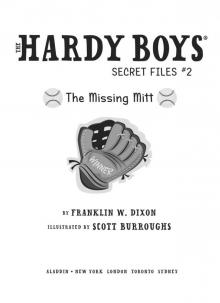 The Missing Mitt
The Missing Mitt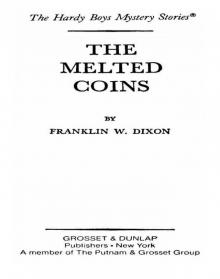 The Melted Coins
The Melted Coins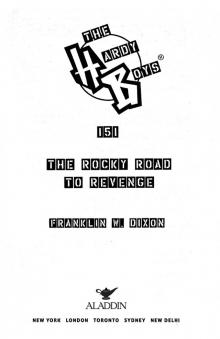 The Rocky Road to Revenge
The Rocky Road to Revenge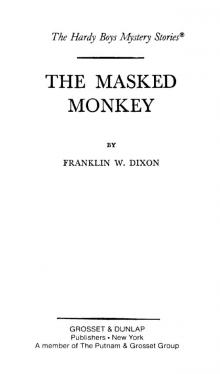 The Masked Monkey
The Masked Monkey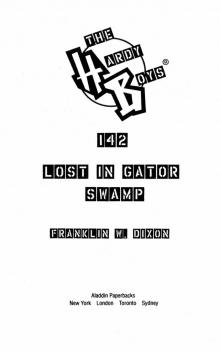 Lost in Gator Swamp
Lost in Gator Swamp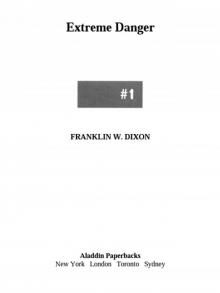 Extreme Danger
Extreme Danger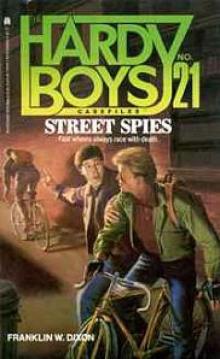 Street Spies
Street Spies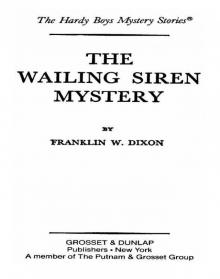 The Wailing Siren Mystery
The Wailing Siren Mystery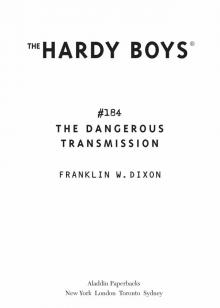 The Dangerous Transmission
The Dangerous Transmission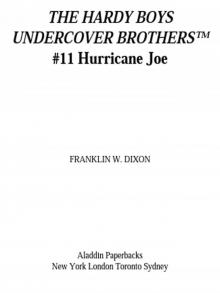 Hurricane Joe
Hurricane Joe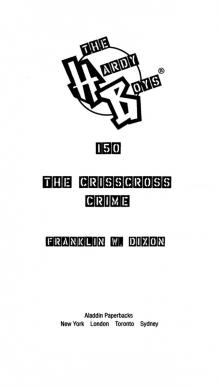 The Crisscross Crime
The Crisscross Crime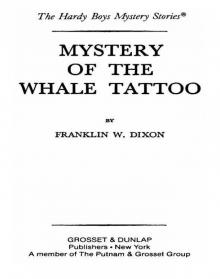 Mystery of the Whale Tattoo
Mystery of the Whale Tattoo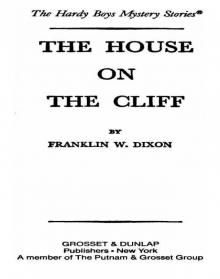 The House on the Cliff
The House on the Cliff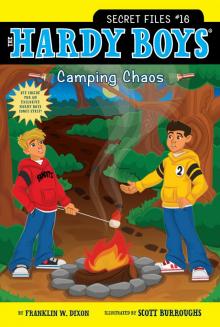 Camping Chaos
Camping Chaos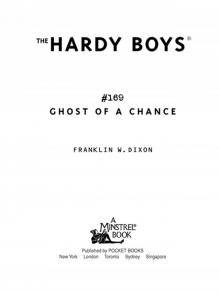 Ghost of a Chance
Ghost of a Chance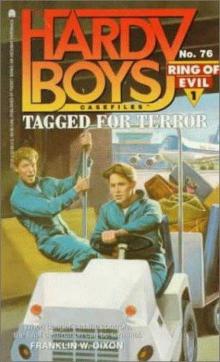 Tagged for Terror
Tagged for Terror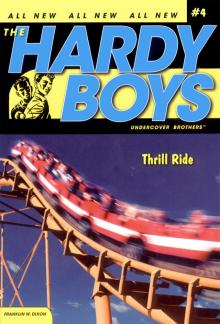 Thrill Ride
Thrill Ride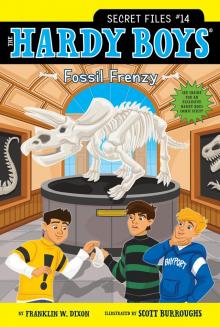 Fossil Frenzy
Fossil Frenzy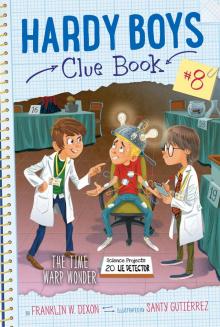 The Time Warp Wonder
The Time Warp Wonder Ghost Stories
Ghost Stories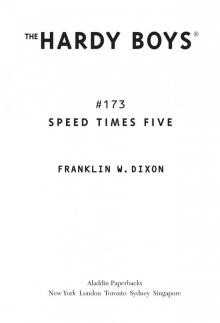 Speed Times Five
Speed Times Five What Happened at Midnight
What Happened at Midnight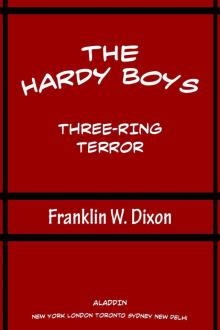 Three-Ring Terror
Three-Ring Terror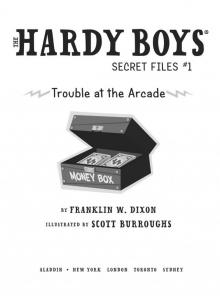 Trouble at the Arcade
Trouble at the Arcade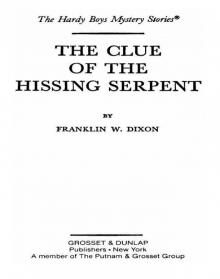 The Clue of the Hissing Serpent
The Clue of the Hissing Serpent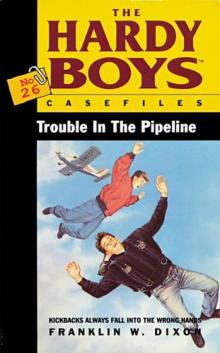 Trouble in the Pipeline
Trouble in the Pipeline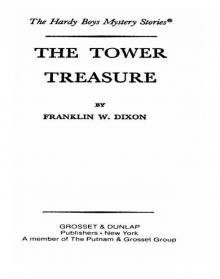 The Tower Treasure
The Tower Treasure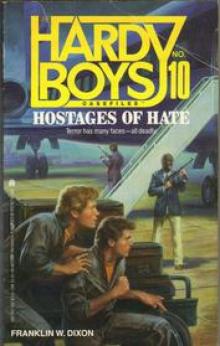 Hostages of Hate
Hostages of Hate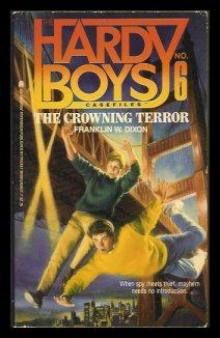 The Crowning Terror
The Crowning Terror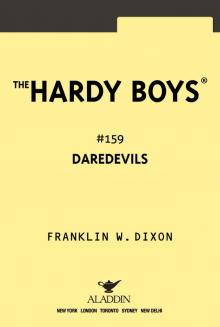 Daredevils
Daredevils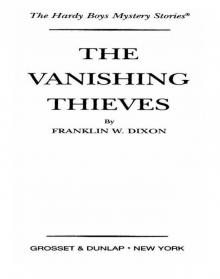 The Vanishing Thieves
The Vanishing Thieves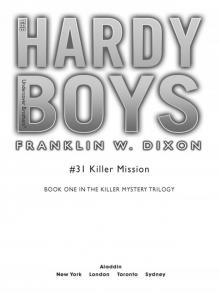 Killer Mission
Killer Mission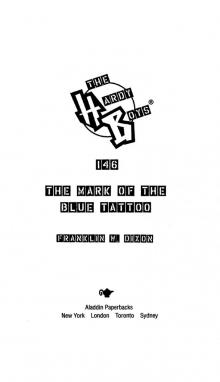 The Mark of the Blue Tattoo
The Mark of the Blue Tattoo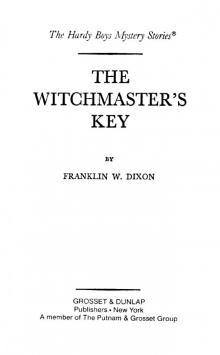 The Witchmaster's Key
The Witchmaster's Key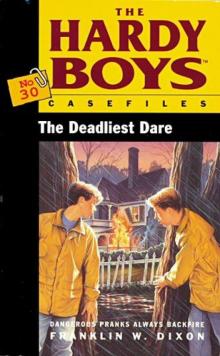 The Deadliest Dare
The Deadliest Dare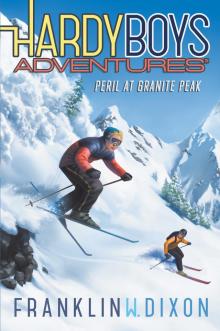 Peril at Granite Peak
Peril at Granite Peak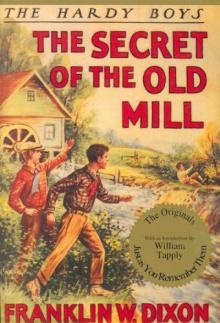 The Secret Of The Old Mill thb-3
The Secret Of The Old Mill thb-3 Rocky Road
Rocky Road The Demolition Mission
The Demolition Mission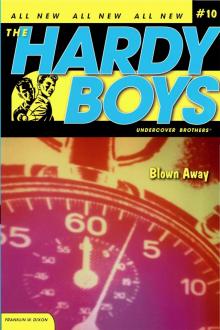 Blown Away
Blown Away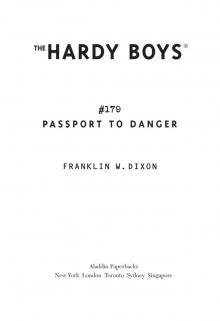 Passport to Danger
Passport to Danger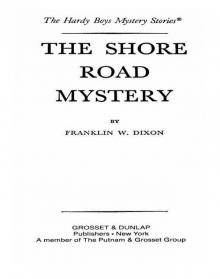 The Shore Road Mystery
The Shore Road Mystery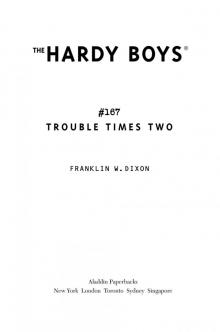 Trouble Times Two
Trouble Times Two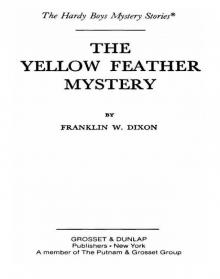 The Yellow Feather Mystery
The Yellow Feather Mystery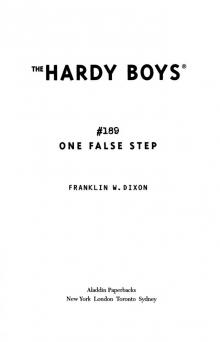 One False Step
One False Step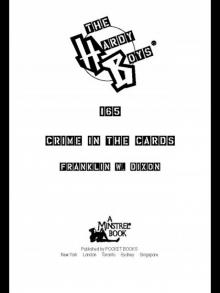 Crime in the Cards
Crime in the Cards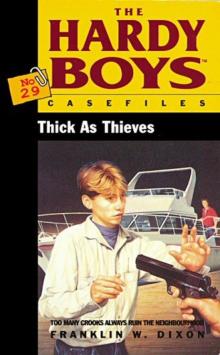 Thick as Thieves
Thick as Thieves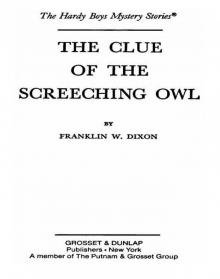 The Clue of the Screeching Owl
The Clue of the Screeching Owl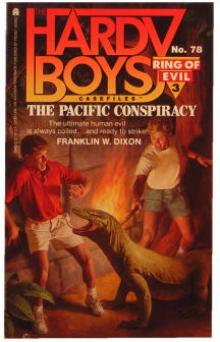 The Pacific Conspiracy
The Pacific Conspiracy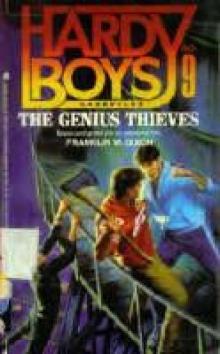 The Genius Thieves
The Genius Thieves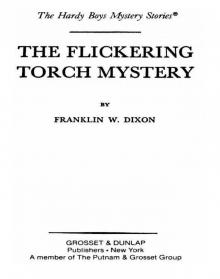 The Flickering Torch Mystery
The Flickering Torch Mystery Into Thin Air
Into Thin Air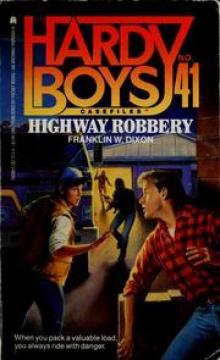 Highway Robbery
Highway Robbery Deadfall
Deadfall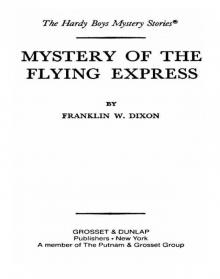 Mystery of the Flying Express
Mystery of the Flying Express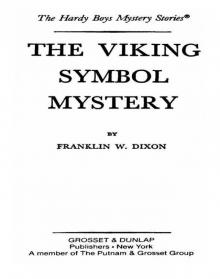 The Viking Symbol Mystery
The Viking Symbol Mystery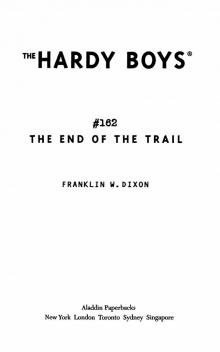 The End of the Trail
The End of the Trail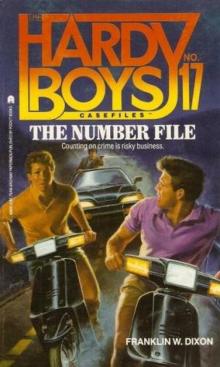 The Number File
The Number File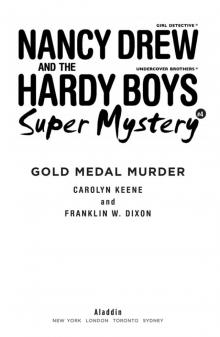 Gold Medal Murder
Gold Medal Murder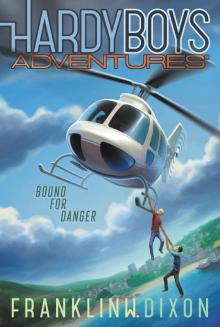 Bound for Danger
Bound for Danger Collision Course
Collision Course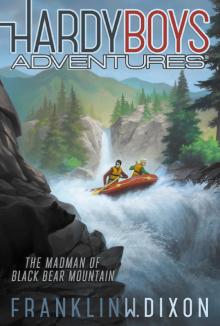 The Madman of Black Bear Mountain
The Madman of Black Bear Mountain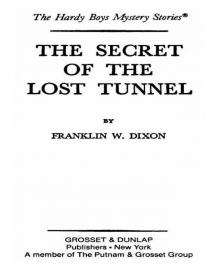 The Secret of the Lost Tunnel
The Secret of the Lost Tunnel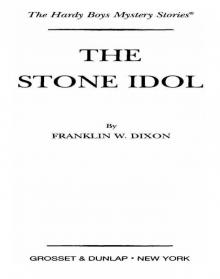 The Stone Idol
The Stone Idol The Secret of Pirates' Hill
The Secret of Pirates' Hill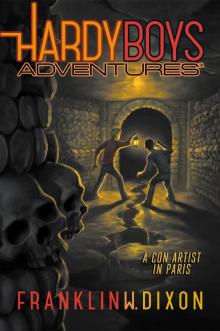 A Con Artist in Paris
A Con Artist in Paris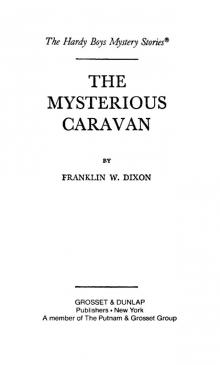 The Mysterious Caravan
The Mysterious Caravan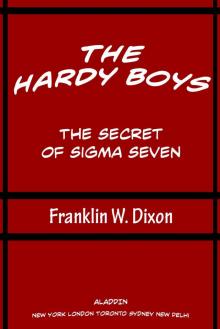 The Secret of Sigma Seven
The Secret of Sigma Seven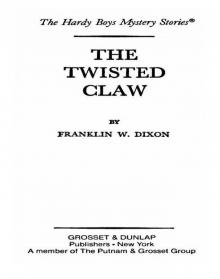 The Twisted Claw
The Twisted Claw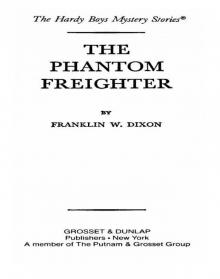 The Phantom Freighter
The Phantom Freighter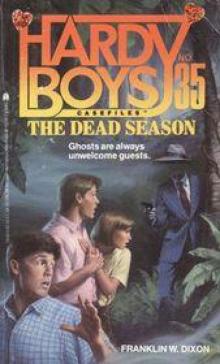 The Dead Season
The Dead Season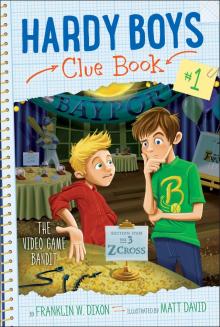 The Video Game Bandit
The Video Game Bandit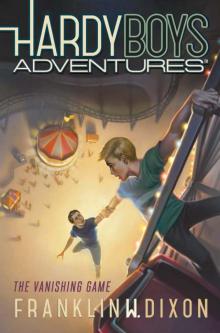 The Vanishing Game
The Vanishing Game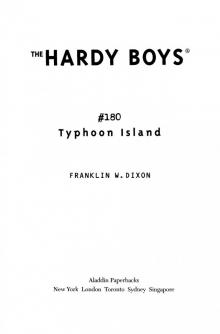 Typhoon Island
Typhoon Island